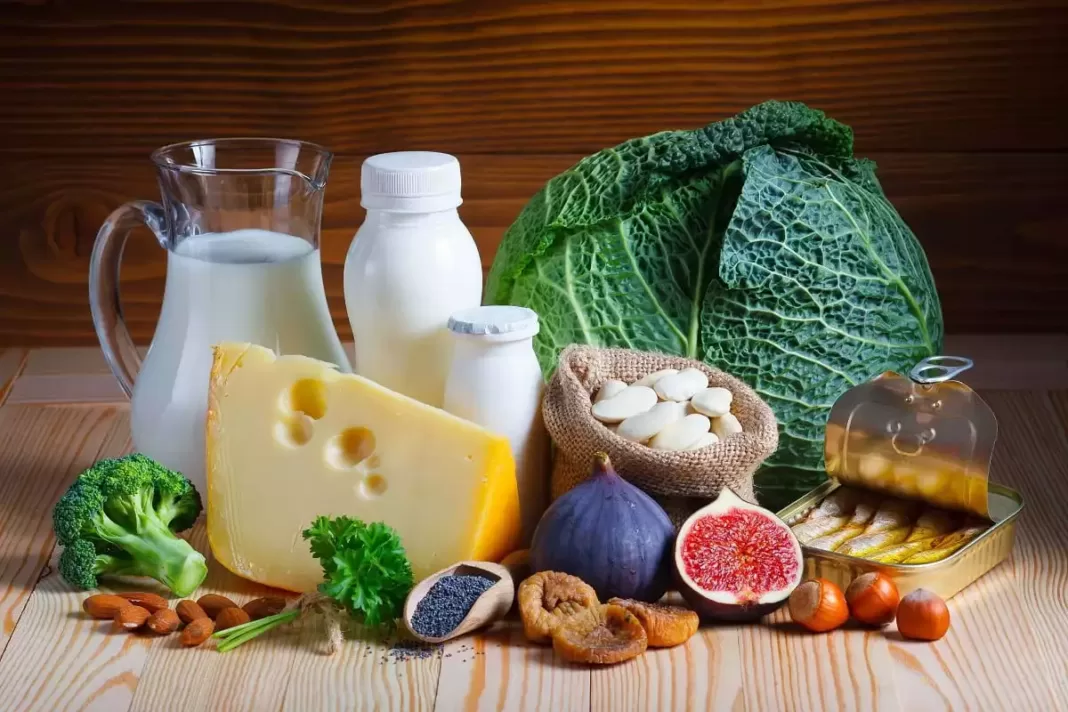I believe everyone from the dawn of time knows how important the intake of calcium is. We’ll be told to include loads of calcium in our daily diet by intaking cheese, milk, and yogurt. Dairy Free Sources of Calcium.
But what if you don’t like milk anymore? Or you’re suffering from extreme bloating and constipation due to excessive intake of calcium.
Can you shift to a diary-free diet? Wondering if it might help you in getting the allocated amount of calcium regularly?
Absolutely! There are various dairy-free sources from where you can get Dairy Free Sources of Calcium.
Whoever is reading this article doesn’t know about these sources. Do you want to know them?
This article is for all those people who’re looking for surprising dairy-free sources of calcium. Let’s get started.
Seven Dairy Free Sources of Calcium
It is a misconception that calcium just comes in dairy products. Calcium does come in several different foods that aren’t dairy. Milk, cheese, and yogurt are the first prime source of obtaining calcium.
But, there are other alternatives as well for calcium. Before we dive into the dairy-free calcium sources, let’s have a quick reminder about the importance of maintaining calcium levels in our bodies.
- Healthy Bones: Mainly, 99% of the body’s calcium is stored in your bones. Thus, when you enter adulthood or become older, your body strengthens your bones, and for this, you need to have calcium in your diet regularly.
- Heart Functions: Calcium is essential to keep your heart muscle pump properly.
- Transmission of Nerve: Calcium triggers cell signals that direct muscles to contract and helps you in movement.
Let’s jump right into the surprising seven dairy-free sources that are rich in calcium.
Plant-Based Milk
Are you looking for products that are rich in calcium other than dairy products? Plant-based milk is one of them. They are readily available at your nearest grocery stores, and even you can make them easily without any hassle.
All you need is to choose anyone from almond, cashew, coconut, oat, rice, and hemp milk. The plant milk provides you 25% of calcium that equals cow’s milk. Isn’t this amazing?
Tofu
Also known as bean curd consists of antioxidants and anti-inflammatory chemicals that are essential for an anti-inflammatory diet. When tofu is made with calcium sulfate, it becomes calcium-rich and other vital minerals and vitamins.
The half-cup gives 253 mg calcium. For a more savory taste, use a tofu press to remove water from tofu and result in a much denser block texture. That’s great, isn’t it?
Seaweed
To your shock, algae that are a form of algae can be eaten in different forms such as dulse, hijiki, kelp, kombu, and wakame. Besides being a significant source of many other nutrients, mainly omega 3, magnesium, and vitamin B12, it also gives a healthy calcium percentage.
Hijiki contains 14 times more calcium than dairy milk, while only 100 grams of wakame provides more than 10 percent of the daily calcium needs. Amazing right?
Blackstrap Molasses
Did you know that black molasses provides several different nutrients to your body at a time? It is a by-product of raw sugarcane rich in calcium and copper, iron, magnesium, and potassium.
You just need one tablespoon of black molasses, and it’s equal to a whopping 20 percent of your calcium intake.
Figs
Figs are yet another dairy-free calcium-rich source that adds 20 percent of your recommended calcium intake. Figs are incredibly juicy in taste and rich in vitamin B, copper, iron, fiber, and manganese.
Curly Kale
These green leaves are the powerhouse of many minerals and vitamins. They are rich in antioxidants, fiber, iron, vitamin C and K, and of course, calcium. You can add it to your salad and fulfill the recommended requirement.
You know that four tablespoons of cooked kale comprise 120 mg of calcium, which equals 17 percent of your requirement. Sounds great!
Sesame Seeds
You know that one tablespoon of sesame seeds has 80 mg calcium that fulfills 11 percent of the body’s daily requirement. Remember, not all food tastes good, having too many sesame seeds. Therefore, sprinkle one tablespoon, and that’s enough.
For a change of taste, toast the seeds, add broccoli, and enjoy a healthy dish. So mouthwatering!
Final Words
In all, milk and cheese remain the excellent and first-hand sources of intaking calcium. But for some reason, you can intake calcium from non-dairy products like the ones mentioned above. As you continue to enrich your diet with non-dairy calcium products, it’s vital not to forget to include vitamin D in your diet to absorb calcium from your body.







